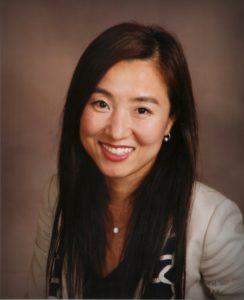
When Climate Change Squeezes Learning in the Classroom: The Theological Educator’s Role in Responding to Ecological Distress in Students
On a day when the National Weather Service issued warnings about severe thunderstorms and cold temperatures accompanied by snow and ice, I received multiple emails from students expressing their emotional distress and difficulty in focusing on their learning within the classroom, attributing their distress to climate change. One student wrote “I have had two severe hives breakouts this semester that seem to have been impacted by the weather/temperature and walking outdoors… and I am very worried that the colder temperature today combined with the snow/ice could trigger another breakout.” She shared that her hive breakouts were related to rapid temperature drops.
According to a report by the US federal government, climate change has been identified as the cause of a wide spectrum of mental health challenges, spanning from mild stress and distress symptoms to severe clinical conditions like anxiety, depression, post-traumatic stress disorder, and even thoughts of self-harm.[1] The impact of climate change on students is evident in the classroom, as it leads to extreme temperatures and weather patterns, affecting their learning experience. This winter, in particular, presented significant challenges due to rapid climate shifts, disrupting both students and myself. Consequently, I made the decision to adapt the learning approach or modify the course materials to address and respond to the needs of students who were dealing with ecological distress from climate change.
People living in the context of climate change know it is no longer a distant threat but an unavoidable reality. They directly or indirectly experience extreme weather events, the loss of biodiversity, and the degradation of ecosystems. These experiences keep interrupting the learning community by leaving people feeling overwhelmed, powerless, angry, full of grief, and anxious about the future.[2] It requires educators to understand clinical responses of learners when ecological distress becomes visible in the classroom.
As theological educators, it is vital to acknowledge and support students’ concerns about climate change, creating a safe space for them to express their fears and emotions while navigating their psychological responses to ecological distress. Establishing a safe and supportive learning environment is crucial, and I strongly recommend prioritizing regular “check-ins.” These check-ins allow students to share their personal experiences, thoughts, and fears related to the climate. By tapping into their lived experiences, we can employ diverse teaching methods to enhance their learning opportunities and address their concerns about the future. Moreover, this practice promotes emotional solidarity within the classroom, validating intense emotions and enabling students to explore coping strategies and productive ways of learning through listening to one another’s experiences.
Theological educators with students in the classroom stand at the intersection integrating ecological themes and spiritual practices with a theological reflection of creation. Karen Baker-Fletcher, in A Singing Something: Womanist Reflections on Anna Julia Cooper,[3] highlights a spirituality centered on justice and creation, which invokes a profound perception of a sense of God within nature. The embodiment of God, Spirit, Christ, Creation, and humans emphasizes the interconnectedness of all life and the interrelationality of all creation. By connecting theology and pastoral care and counseling, I relate to the importance of communal care in the classroom. Being sensitive to ecological distress resulting from climate change in the classroom is to create a learning community based on “communal care,” which opens dialogue about climate change and its impact on individuals and communities while instilling hope and resilience.
By embracing the learner’s emotional and psychological struggles and demonstrating a positive attitude, the educator’s engagement shows resilience in the face of challenges in the learning process. It establishes a learning community where students motivate themselves in sharing their stories of individuals and communities and participate in offering communal care in the classroom. Cultivating a sense of hope and resilience empowers students to navigate the challenges of climate change and to have a sense of purpose and agency in the learning process.
As climate change continues to squeeze into the classroom, theological educators have a significant role to play in addressing the ecological distress experienced by students. Although it can be quite overwhelming, we can recognize the urgency of the environmental crisis, begin working on acknowledging and validating ecological distress, reflect theologically, engage with a justice-oriented spirituality of creation, and build a learning community with communal care to instill hope and resiliency. Theological educators and learners have a collective role in working towards a more sustainable and just future.
[1] Daniel Dodgen, Darrin Donato, Nancy Kelly, Annette La Greca, Joshua Marganstein, Joseph Reser, Josef Ruzek, et al. “Chapter 8: Mental Health and Wellbeing” in The Impacts of Climate Change on Human Health in the United States: A Scientific Assessment (Washington, D.C.: US Global Change Research Program, 2016) 217–246. http://dx.doi.org/10.7930/J0TX3C9H.
[2] M. Ojala, “Facing Anxiety in Climate Change Education: From Therapeutic Practice to Hopeful Transgressive Learning,” Canadian Journal of Environmental Education 21 (2016): 41–56.
[3] K. Baker-Fletcher, A Singing Something: Womanist Reflections on Anna Julia Cooper (New York: Crossroad, 1994).
Leave a Reply